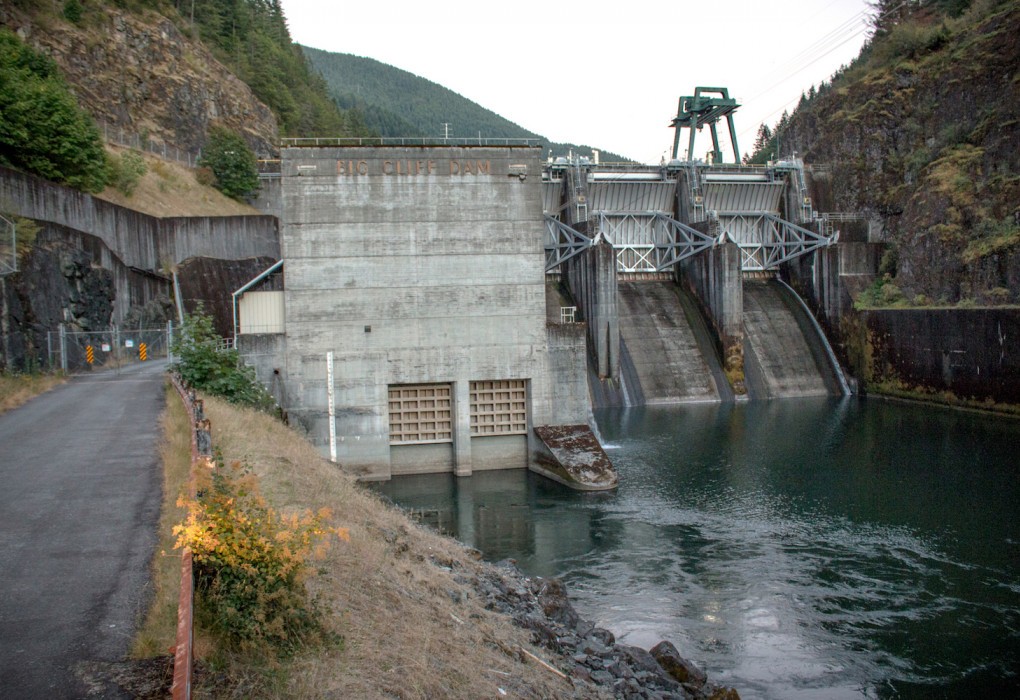Corps on Notice for Failing to Protect Willamette River Chinook and Steelhead
Missed deadlines, postponed actions, poor communication drive fish closer to the brink.
Contacts:
Lizzy Potter, Advocates for the West, 503-914-6388, epotter@advocateswest.org
Marlies Wierenga, Wild Earth Guardians, 503-278-0669, mwierenga@wildearthguardians.org
Mark Sherwood, Native Fish Society, 503-344-4218, mark@nativefishsociety.org
Mark Riskedahl, Northwest Environmental Defense Center, 503-750-5533, msr@nedc.org
Highlighting nearly a decade’s worth of missed deadlines, postponed actions, and poor communications from the U.S. Army Corps of Engineers (Corps), a coalition of conservation groups warned federal water managers of its intent to bring suit to protect threatened Willamette River Chinook and Steelhead. With only one to two percent of the wild fish’s historical numbers returning to spawn this year, there is no time to waste.
Historically, around 325,000 Chinook and 220,000 steelhead skillfully made their way up Willamette Falls to spawn in the upper river basins. This year, an estimated 5,880 wild Spring Chinook and 822 steelhead returned - 99 percent less than historical numbers. In 1999, the National Marine Fisheries Service (NMFS) sounded the alarm, listing the Upper Willamette River Fall Chinook and Winter Steelhead as threatened under the Endangered Species Act. The Corps, which operates the dams, has routinely dodged actions, skipped deadlines and sidelined state and federal agencies to avoid improving fish passage at the dams on the Willamette River.
“Everyone in the Northwest that values healthy rivers and forests and fills their glasses with clean drinking water from wild places, ultimately share common cause with our wild salmon and steelhead, which are the silver thread that holds our region’s ecosystems together,” said Mark Sherwood, Executive Director of the Native Fish Society. “To protect the integrity of our home and our homewaters, federal dam operators in the Willamette River basin must act now to protect our native fish.”
The group’s notice of intent to sue the Corps identified numerous mandatory actions delayed again and again, such as the requirement to improve dam passage for adult and juvenile fish. Four dams block between 40 to 90% of spawning habitat, and their large reservoirs and high head (dam height) make it nearly impossible for small fish to swim downstream. In 2008, the NMFS required the Corps to complete numerous actions by specific deadlines in order to continue operating the dams.
“Nearly ten years ago, NMFS determined that the Corps’ operation of the Willamette dams was likely to jeopardize Chinook and steelhead unless significant changes to the Willamette dam operations were made,” said Mark Riskedahl, Executive Director of the Northwest Environmental Defense Center. “NMFS told the Corps that fish passage was a high priority, yet the Corps has dragged its feet in meeting this requirement and others set by NMFS.”
Structural or operational changes to improve downstream passage were expected to be completed at Cougar Dam by 2014, followed by Lookout Point in 2021. Operations to improve water temperature and dissolved gas levels at Detroit and Big Cliff were expected by 2009 and at other dams in 2010. The groups contend that the Corps has developed a pattern of delays that can no longer be tolerated if fish are to survive. They would strongly prefer that action be taken absent litigation, but will also not continue to stand idly by.
“The Willamette River begins in the Cascade mountains and meanders through the heart of Oregon,” said Marlies Wierenga, the Pacific Northwest Conservation Manager of WildEarth Guardians. “It would be a heartbreaking loss if we as Oregonians let these culturally important fish, which have adapted and thrived here for generations, slip away from existence on our watch.”
About the groups:
WildEarth Guardians protects and restores the wildlife, wild places, wild rivers and health of the American West. For more information, please visit: wildearthguardians.org
Native Fish Society, guided by science, advocates for the recovery of wild, native fish and promotes the stewardship of the habitats that sustain them. For more information, please visit: nativefishsociety.org
Northwest Environmental Defense Center works to protect the environment and natural resources of the Pacific Northwest. For more information, please visit: law.lclark.edu/centers/northwest_environmental_defense_center
Advocates for the West is a non-profit law group that fights to protect the West’s most treasured natural landscapes and native wildlife and is representing the three conservations groups in this matter. For more information, please visit: advocateswest.org



